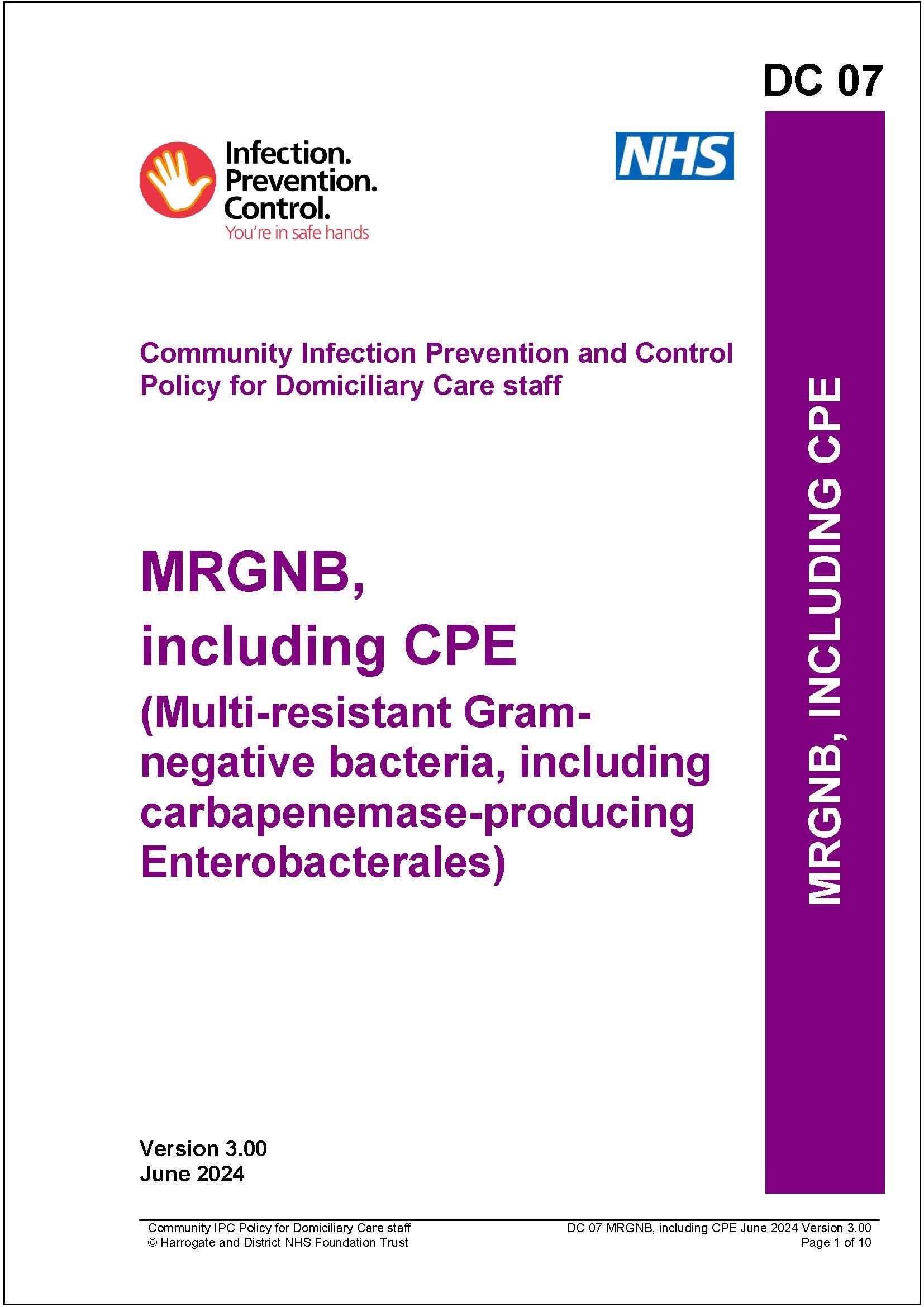Bacteria commonly found in the intestine include Escherichia coli (E. Coli), Klebsiella, Proteus, Pseudomonas Enterobacter and Acinetobacter. Collectively these bacteria are referred to as gram-negative bacilli (GNB) and are part of our ‘good bacteria’. However, under certain circumstances, they can become resistant to antibiotics and may require infection control management. When this happens, they are referred to as multi-resistant Gram-negative bacteria (MRGNB).
One of the more recently identified MRGNB is carbapenemase-producing Enterobacterales (CPE). These resistant strains of bacteria produce an enzyme that destroys the powerful group of antibiotics, such as imipenem, which is used in hospitals.
A downloadable Community Infection Prevention and Control (IPC) Policy which can be adopted by your organisation is available below. Alternatively, a complete set of IPC Policies for Domiciliary Care staff is available to purchase @ £74.99, including postage – details can be found on the flyer and resource order form below.
Page updated: 15/07/2024
Dom Care Order Form